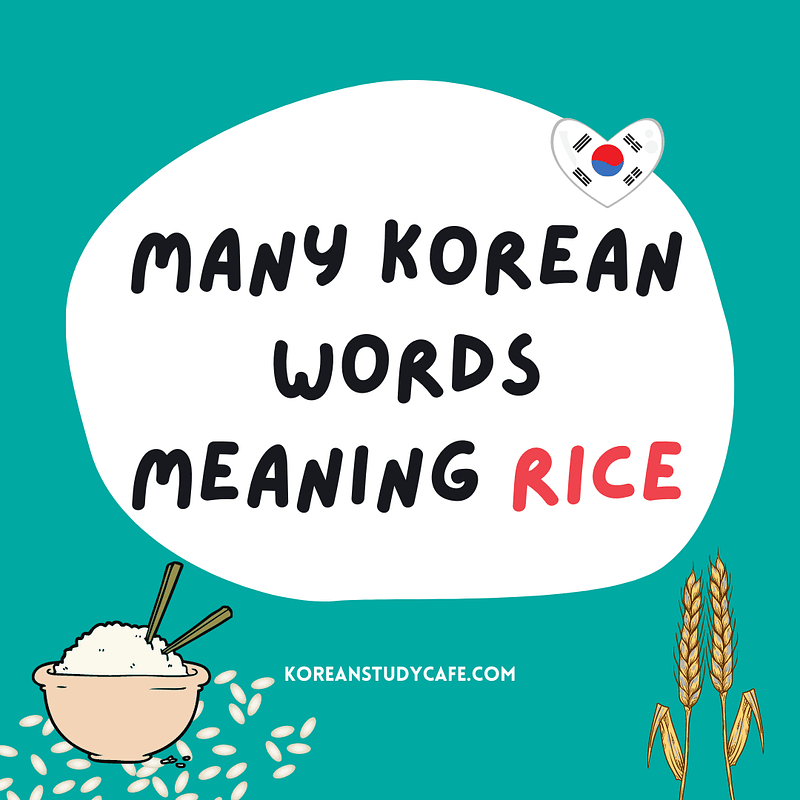Powered by RedCircle
Vanessa: 15화: 쌀을 씻고 밥을 지어요.
Chris: Episode #15: I wash rice and cook rice.
Chris: 안녕하세요? 바네사! 지금 뭐 하고 있어요? What are you doing?
Vanessa: 아, 크리스! 저 지금 배고파서 밥을 지을 거예요. I will cook rice because I’m hungry 그래서 쌀 씻고 있어요. That’s why I’m washing rice
Chris: Oh, I see that you are washing and prepping rice, but what does 밥을 지을 거예요mean?
Vanessa: Oh, it means I will cook rice.
Chris: Yeah? Is 밥 also rice?
Vanessa: Oh, I see where you got the confusion. Then, I will explain that first and before I prepare the rest. Yes. 밥is rice and 쌀 is also rice.
Chris: Well… Why do you use two different words to describe the same thing?
Vanessa: Well… When translated into English, both words translate as rice, but these two words do not mean the same thing in Korean.
Chris: Oh, so what’s the difference?
Vanessa: First of all, 쌀is uncooked rice. And 밥is cooked rice.
Chris: Oh, you use different words depending on whether it is cooked or not.
Vanessa: Yes, that is correct. 밥 meaning cooked rice is a staple food for Koreans. Therefore, there are many more specific expressions related to it compared to other languages.
Chris: Oh? What other terms and meanings does it have?
Vanessa: Well… Actually, we learned it in episode 4, but 밥also means meal. Because throughout history rice was always included in all the meals. That is why the word 밥 is symbolized as the meal. So when you say, 밥 먹었어요? is interpreted as did you eat? Or have you eaten? Or Did you have a meal?
Chris: Ah! Listening to your explanation, I suddenly remembered a scene from a Korean drama I watched. There was a scene where the actor said, 밥을 먹고 있다 yet he was eating cereal for breakfast.
No wonder that’s why he said it!
Vanessa: Yes! That’s correct! In fact, Koreans these days do not eat rice at every meal. If you visit Korea, you will notice the diversity of cuisines where you enjoy cuisine from all over the world. However, when expressing the meaning of a meal, people still use the expression 밥, because Koreans have been using it for so long, it became the term that defines it.
Chris: Oh, I see. Vanessa, I also learned that meal means 식사as well. How is 식사 different from 밥?
Vanessa: That’s a good question. The word식사do not have various meanings like 밥but has only one meaning, meal as you know. Also, it delivers a bit more formal tone. That is why when speaking to older people or at an official event, it is better to say 식사를 하다 than 밥을 먹다.
Chris: Oh, I see. Learning the background stories of the terms, I can feel how important rice is to Koreans.
Vanessa: Yes. In ancient times, when rice was scarce, Koreans’ love for rice was indescribable. We use the verb 짓다 for cooking rice, but the meaning of verb짓다 is to make something with time and effort. The verb 짓다 is used to describe houses, poems, and song lyrics. With the verb 짓다, you can see how much meaning Koreans attach to the act of cooking and love for rice.
Chris: Wow, people thought cooking rice took a lot of effort, time, and care, similar to building the house, writing poetry, and song lyrics
Vanessa: Yes. That is how much people loved rice and how it played an essential role in people’s life.
Chris: Koreans’ love for rice is surprising.
Vanessa: Yes. Then now, shall we practice what we learned today?
Chris: Sounds good!
#1
한국인들은 쌀을 씻고 밥을 지어요. 그러면 쌀에 붙은 먼지도 씻을수 있고 밥맛도 더 좋아져요.
Koreans wash rice, then cook it. By washing, you can wash off dust attached to the rice, which makes rice taste better.
#2
Chris: 선생님, 식사 하셨어요? Hi teacher, have you eaten?
Vanessa:네. 밥 먹었어요.다들 밥 먹었어요? Yes. I ate already. Did everyone have your meals?
Chris: 네, 우리 모두 밥 먹었어요. Yes, we all ate it.
Follow us on Instagram: KoreanStudyCafe.Offical
Follow us on Twitter: @KoreanStudyCafe





